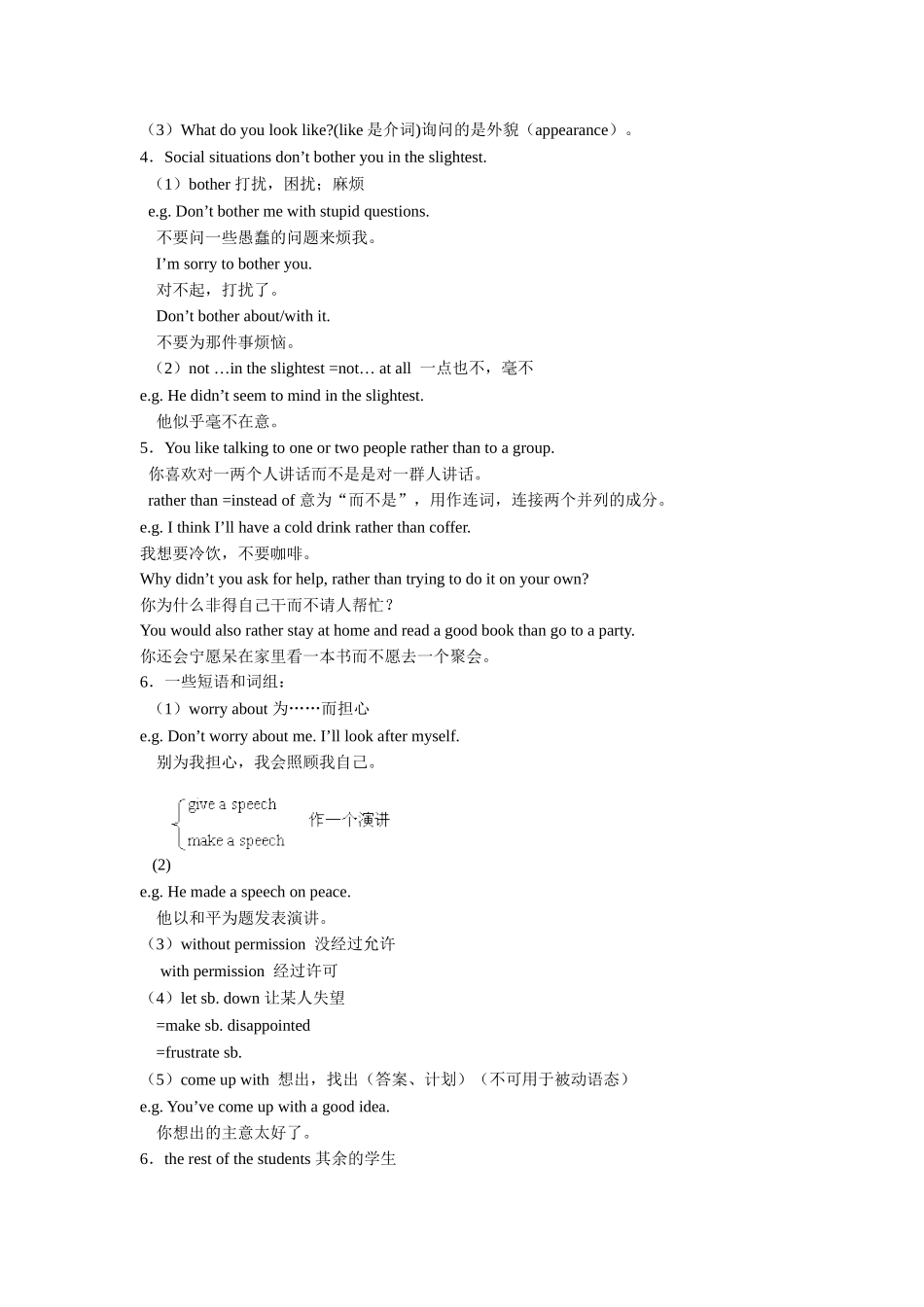Unit 4 What would you do?在本单元内我们要完成以下学习任务:1.学习表示与现在事实相反的虚拟语气的结构。2.学习谈论一些假设的、虚拟的情况。3.学习使用虚拟语气提出建议。一、重难点提示1.What would you do if you had a lot of money? a.如果你有很多钱你将做什么?这是一个与现在事实相反的假设,用的是虚拟语气。虚拟语气用来表示说话人的愿望、假设、猜测或建议,而不表示客观存在的事实。虚拟语气通过谓语动词的特殊形式来表示。在本单元中出现的是虚拟语气中的一种:表示与现在事实相反的一种假设,与 if 引导的条件状语从句一起使用。结构:条件状语从句中的谓语动词用过去式(动词 be 多用 were),主句中的动词用 would+动词原形。e.g. —What would you do if you had a million dollars? 假如你有一百万美元你将干什么? —If I had a million dollars, I’d buy a plane and travel around the world. 我将买一架飞机并周游世界。e.g. If I were you, I’d wear a shirt and tie. 如果我是你,我会穿衬衣打领带。 I’d=I would2.What if everybody else is wearing jeans and T-shirts? 如果别人都穿牛仔裤、T 恤衫怎么办呢?what if 的用法:(1)如果……怎么办?e.g. What if I don’t know anyone? 如果我不认识任何人怎么办?(2)即使……又有什么关系?e.g. What if he goes angry? 即使他生气又有什么关系?3.—What are you like? 你是个什么样的人? —I think I’m creative and outgoing. 我想我具备创造力并且善于交际。※注意以下几个句子所询问的不同内容:(1)What are you like?(like 是介词)询问的是性格(personality)。(2)What do you like? (like 是动词)询问的是爱好(hobby)。(3)What do you look like?(like 是介词)询问的是外貌(appearance)。4.Social situations don’t bother you in the slightest. (1)bother 打扰,困扰;麻烦 e.g. Don’t bother me with stupid questions. 不要问一些愚蠢的问题来烦我。 I’m sorry to bother you. 对不起,打扰了。 Don’t bother about/with it. 不要为那件事烦恼。 (2)not …in the slightest =not… at all 一点也不,毫不e.g. He didn’t seem to mind in the slightes...


